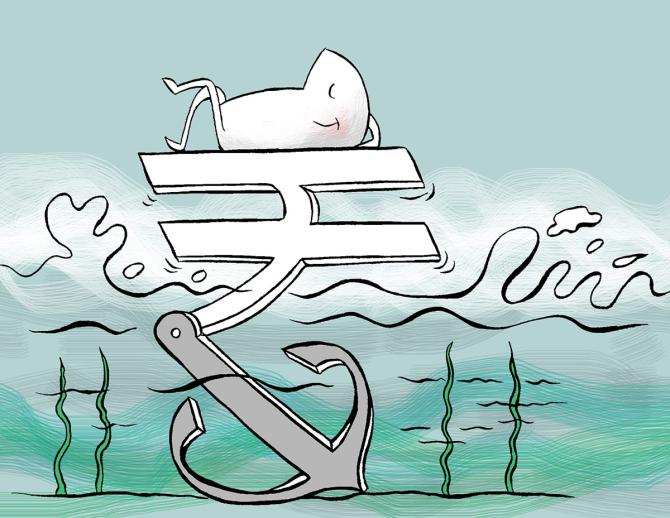'The risk is in not being invested and missing out on an upmove.'

Rising food prices and commentary from global central banks have thrown a spanner in equity market rally.
Devina Mehra, founder, chairperson, and managing director of First Global, tells Puneet Wadhwa/Business Standard in an e-mail interview that she expects the outperformance of the Indian equity markets to continue.
For investors, is it time to be greedy or fearful?
I do not think it is time to be fearful. There are a few factors behind my saying so.
For one, from 2010 to 2020, it was an underperformance period for Indian markets relative to their history, offering only a compound annual return of 8.8 per cent, as opposed to a longer-term average of 15 to 16 per cent.
Plus, it also underperformed relative to global markets in this period.
When the outperformance started after that, it was expected to last.
The risk of a large correction or a time to be fearful is when the market is far above the trend line, which is not the case currently.
While I do not generally like to look at index-level price/earnings (P/E) multiples, the P/E is also not at stretched valuations.
The risk is still in not being invested and missing out on an upmove.
Are investable themes in short supply now?
There are concerns in the Indian economy, primarily regarding the K-shaped recovery and the lack of job creation.
For example, the growth in luxury cars is much higher than that in two-wheelers and entry-level cars, which even showed volume declines in some years.
The same is true of luxury housing versus affordable housing.
The formalisation of the economy has helped the organised sector, and the listed space tends to attract more affluent customers, so that segment has done better.
There are always sector shifts, but there are still opportunities in the market.
What has been your investment strategy?
We are quite bottom-up driven, with an overlay of risk management that includes diversification across sectors without any undue concentration.
In the past 20 to 22 months, we have been most overweight on capital goods and industrial machinery sectors.
It has been discovered by the rest of the market only recently.
Select fast-moving consumer goods names, like ITC and Britannia, have also been big winners for us.
In 2023, we will have added stocks in the automotive, automotive component, pharmaceutical, and a few construction companies.
I gave a clear buy call with no conditionality twice during this period: once in June 2022 and then in March 2023.
Both times, these turned out to be very close to the bottom of the market (15,300 and 16,900 National Stock Exchange Nifty levels, respectively), where significant rallies were seen in the subsequent couple of months.

Do you see earnings downgrades over the next few quarters as input costs bite?
I do not see any significant risk of earnings slowing down, as most input prices are down relative to last year.
Many inputs are petroleum-related, and while crude oil prices are up from the bottom, they are still down year-on-year.
Even metals are not in a bull run, so I do not see big input price pressures.
Higher inflation may hurt through another route, which is high food prices resulting in food crowding out other consumer expenditures.
Which equity markets across the globe have now become crowded for foreign institutional investors (FIIs)?
The Indian equity market has been an outperformer for the past few years.
Even though it was down in dollar terms in 2022, it performed better than most others.
I expect this outperformance to continue.
I do not forecast, or even monitor, FII flows from a market perspective because data shows that these do not correlate whatsoever with market movements.
Hence, it is a futile exercise to waste time on that.

Is the worst over for global bond markets?
2022 was the worst year in 200+ years in the global bond market.
Hence, I was clear that 2023 was unlikely to be a down year, as that kind of year does not repeat.
On the other hand, I have never said that the US Federal Reserve (Fed) would cut rates in the second half of 2023.
History shows that inflation does not come down that fast. Ever!
Most emerging-market banks had started raising rates ahead of the Fed in 2021, and some have now begun to cut rates.
The Reserve Bank of India has to monitor inflation back home, even though it is currently driven by food prices, which cannot be controlled through interest rates.
Nevertheless, it cannot be allowed to run away, as that drives up inflation expectations.
Until now, the RBI has had a growth bias, but raising rates is not off the cards.
Feature Presentation: Aslam Hunani/Rediff.com












 © 2025
© 2025